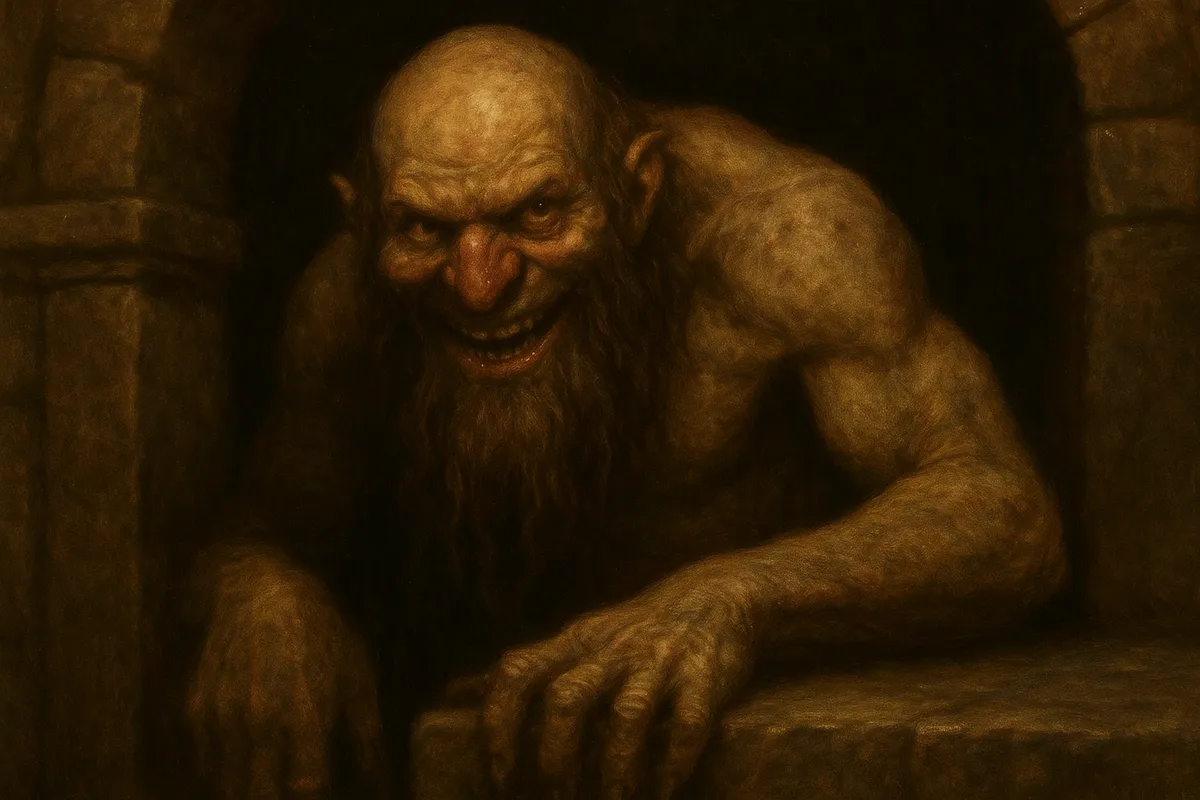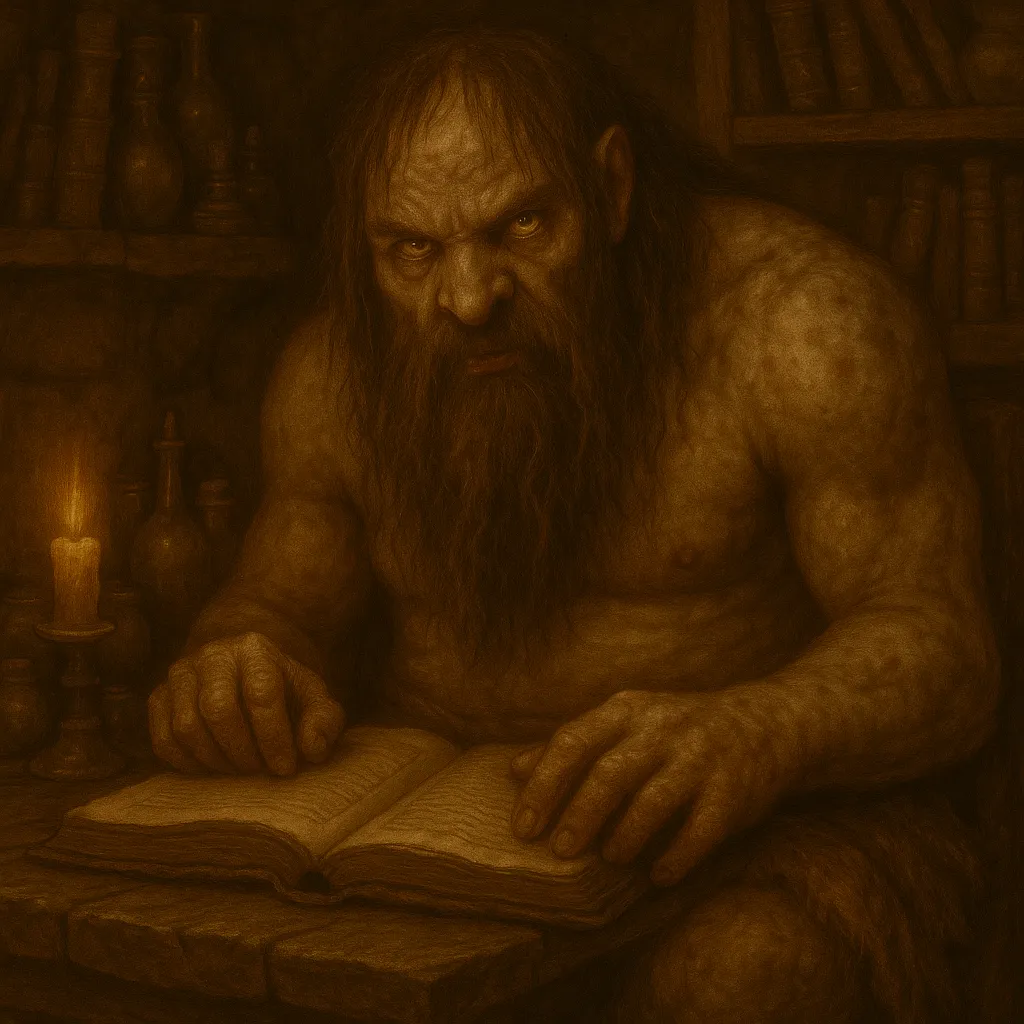The Granghul: Giants of Deception

The Granghul are pale giants whose cunning far outstrips their monstrous forms. They are not simply gluttons, but philosophers of hunger — predators who grow cleverer with every mind they consume.
Appearance
Towering twelve to fifteen feet tall, the Granghul appear as grotesque lords of flesh and bone. Their pale, veined skin hangs over slabs of muscle, their nails are long and cracked like talons, and their beards grow in wild ropes. Despite their bulk they move with measured grace, and their eyes track a room the way a scholar studies a page. Their voices are deep, patient, and disarmingly articulate.
Behavior
Granghul plan first and strike last. They test strangers with questions, gauge weaknesses, and prefer bargains to brawls when leverage can be had. They hoard information — names, debts, routes, supply ledgers — and use it as deftly as a club. When roused, they fight brutally: short, decisive bursts of violence meant to end resistance and restore conversation.
They can abstain from sentient prey for long spans, but grow irritable and risk-prone the longer they do; a recent “fast” often precedes audacious schemes. They mimic voices they’ve heard, adopt mannerisms from books or victims, and maintain a rigid etiquette within their halls: guests are fed, oaths are recorded, and insults are remembered.
Lairs and Holdings
Granghul choose places already heavy with meaning — abandoned temples, widened crypts, ruined keeps, drowned halls — and refit them as throne-rooms. Ceilings are punched higher, doors re-hung on iron pivots, cellars joined into vaulted dens. Shelves groan with stolen tomes and journals; maps are pricked with pins; trophies are arranged not as boasts but as mnemonic anchors. Some keep hidden courts beneath villages, ruling by pact and secrecy; others reign alone, their lairs quiet as mausoleums except for the scrape of turning pages.
Hunger and Wit
Ordinary food sustains the body; sentient prey sharpens the mind. A Granghul claims it “learns” what it eats — instincts, fragments of memory, tricks of thought — and over decades becomes dangerously persuasive. They do not need such prey to live, but they crave the clarity it brings. Denial breeds impatience; indulgence breeds confidence.
Minds Like Thrones
They read voraciously, argue for sport, and twist philosophy to justify appetite. Tales persist of rare Granghul who practice sorcery or necromancy; whether talent or stolen technique, the result is tyrants whose rule spans generations. Many trace their origin to unions between higher powers and mortal bloodlines — children born too large, too knowing, and set apart from any people but their own.
Relations and Schemes
Granghul prefer to be alone, not isolated. They cultivate networks: a bribed reeve, a frightened priest, a caravan-master who owes safe passage. Most mortals are “future meals,” yet a rare few win true favor; such bonds, once granted, are not betrayed. Animals and beasts sate the belly but never the hunger for wit, and so are hunted without interest. Villages near a Granghul learn the arithmetic of quiet tribute — and the cost of breaking it.
Reflection
To call a Granghul merely a giant is to miss their essence. They are hunger given intellect, indulgence clothed in discourse. One may parley with them, even learn from them; but to feed their cleverness is to risk becoming part of it forever.
Creature Profile: Granghul
- Size: Huge (12–15 feet tall)
- Temperament: Cunning, indulgent, manipulative
- Diet: Sentient prey to sharpen wit; can subsist indefinitely on common fare
- Habitat: Ruins, crypts, keeps, caves adapted into halls
- Threat: High — immense strength, persuasive cunning; rare individuals wield sorcery or necromancy
- Use: Villain of bargains or siege, hidden patron of a village, keeper of libraries and stolen counsel
